You have now reached the 13th week of pregnancy, which means that you are officially three months pregnant. Your uterus has grown considerably and has now begun to extend beyond the pelvis. From now on, your belly will start getting bigger and you will soon develop a baby bump. If you want, you can now start sharing the good news with friends and relatives.
Week
13th Week

Fetal size
Kiwi
What happens in the 13th week of pregnancy?
Fetal size
Your baby’s length is now a little over 7cm, i.e. the size of a kiwi. The organogenesis is now complete, meaning that your baby has developed most of its organs. During this week, the auricles start forming, while the development of the inner ear, the nails, the oral cavity, and the external genitalia continues. This is the last week that the nuchal translucency scan can be performed. This ultrasound, in combination with the measurement of certain hormones in your blood, can help calculate the risk your baby has for a chromosomal anomaly. After this week, the calculation of this risk will be less precise. However, if you miss this ultrasound, you can have the A-test (triple test) or the quadruple test, during the 15th-20th week of pregnancy.
Symptoms
- Energy boost. During this week, fatigue usually subsides. Now is the time to do the things you have been postponing or start exercising. Moderate-intensity exercise is beneficial for your pregnancy and can further boost your energy levels.
- Increased libido. Now that the symptoms of the first trimester, especially nausea and fatigue, have subsided, you may want to spend some intimate time with your partner. Keep in mind, that because your cervix has now become softer, you might notice some spotting after sexual intercourse. This is normal, however, if there is significant bleeding, then you should contact your gynecologist.
- Venous congestion. You may have noticed the presence of visible veins in your legs or the genital area. No need to worry. The increased blood flow to your uterus dilates the veins of the vulva. At the same time, the increased pressure that your womb exerts on the vessels in your pelvis causes venous congestion in your lower extremities. If at any point, you notice pain or redness in your legs, consult your gynecologist right away, as these may be signs of thrombosis.


Tips
Your doctor might have already suggested the addition of iron, vitamin D, and calcium to your daily supplements. Your baby needs these valuable nutrients to grow and since you are its sole source, these supplements will help your body cope with the increased needs of pregnancy.
Start applying cream or essential oil to your belly and breasts to avoid stretch marks. When exposed to the sun, do not forget to put sunscreen on, especially on the face. This will prevent the appearance of chloasma, i.e. the “mask of pregnancy”. Choose a sunscreen that is safe for pregnancy.
Apart from your regular exercises, you can start strengthening your pelvic floor muscles with some Kegel exercises. These exercises have been shown to make delivery easier and can protect you from the appearance of incontinence. You can ask your doctor for more information.
If you already have children, now is a good time to start preparing them for the arrival of your baby. Explain to them what’s going on in pregnancy and what will happen after your delivery. If you don’t know how to do it, then an expert on the subject might help you.
14th Week

Fetal size
Lemon
What happens in the 14th week of pregnancy?
You are officially in the 2nd trimester of pregnancy. Congratulations! You can now relax and enjoy the merits of this period. Fatigue and nausea have subsided, and you are full of energy, ready to accomplish anything.
Take advantage of this energy boost to get back on track and to tend to your needs. Plan a trip with your partner and spend some quality time together. Time flies and soon, this may not be possible. You can now start some form of physical activity if you have not done so already. In general, this trimester has milder symptoms than the 1st one.
Your womb has now extended beyond the pelvis, protruding into the upper part of your abdomen. Your pregnancy is eventually starting to show!
Fetal size
Your baby is now 8.5cm long and has the size of a lemon, only sweeter. During this week, your baby completes the differentiation of the external genitalia and now your gynecologist might be able to discern your baby’s sex. However, the chance of error is still high this week, so do not rush to buy the first baby clothes yet. You will find out the sex of your baby with certainty in the anatomy scan, which is performed after the 20th week of pregnancy.
Symptoms
- Abdominal pain. As your uterus grows, the ligaments that hold it in place start stretching, causing pain in your abdomen. This is to be expected and should not worry you. However, if it is combined with vaginal bleeding, then you should contact your gynecologist. Another common cause of pain is indigestion. Pregnancy can cause constipation and bloating. Make sure you eat foods rich in fiber and drink plenty of water.
- Gingivitis. In pregnancy, many women develop gingivitis, even if they didn’t have similar problems in the past. It is quite annoying but treatable. Time to visit your dentist. Poor oral hygiene has been associated with adverse perinatal outcomes, i.e. complications of pregnancy. Your dentist will assess your problem and give you tips for proper dental care.
- Increased appetite. Now that nausea has subsided you may feel hungrier than usual. Indeed, your energy needs have increased, but no more than 300 kcal per day. The recommended weight gain in pregnancy for a woman with a normal BMI (body mass index) is 11 to 16 kgs, while the recommended weekly weight gain from this week onwards is 0.5 kg.
- Time to shine! Your hair has become shinier and thicker, while your skin has started to glow. Pregnancy makes you look more radiant than ever.
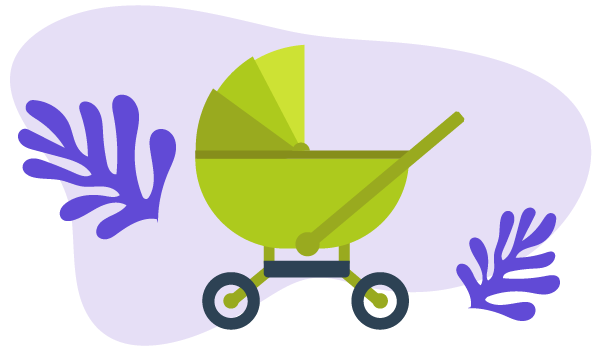

Tips
Continue taking your daily supplements and schedule your next appointment with your gynecologist. This will usually take place between the 16th and 17th week of pregnancy.
Follow a healthy diet and avoid excess weight gain. Start exercising. Moderate-intensity training (walking, yoga, pilates) for 20-30 minutes a day is beneficial for your pregnancy.
Take care of yourself. Apply cream or essential oil to your belly and breasts to avoid stretch marks. Do not forget to put sunscreen on when exposed to the sun.
If you missed the nuchal translucency scan, do not worry. Between the 15th and 20th week of pregnancy, you can have the A-test (triple test) or the quadruple test. With these 2 tests, the levels of 3 or 4 hormones are measured in your blood and, based on these measurements, the risk your baby has for a chromosomal anomaly is calculated.
15th Week

Fetal size
Pear
What happens in the 15th week of pregnancy?
This is the 15th week of pregnancy. It may seem like time is passing by slowly, but maybe not so much. You have already completed the 1st trimester and you are now in the 2nd. During this week, most of the annoying symptoms of the early pregnancy months have subsided, so you can relax and enjoy this feeling. A new life is growing inside you and this may have caused a variety of emotions, joy and impatience or anxiety and fear. There is nothing wrong with how you feel. Share your thoughts with your partner or someone close to you. In any case, do not forget that pregnancy is a unique experience. Try to find creative ways to make it more enjoyable. Arrange a trip, go out for a romantic dinner, or spend some quality time with your friends.
Fetal size
Your baby is about 10cm long, the size of a pear. During this week, the development of the brain, ears, oral cavity, and nails continues. The brain will continue to mature until the end of pregnancy and after birth. Your baby is getting smarter day by day. If your doctor performs an ultrasound at this point, you will be able to see your baby rocking in its amniotic sac more vigorously than before. However, you still can’t feel these movements. This will happen in a few weeks, usually during the 16th to 20th week of pregnancy, or maybe even later. Sexual differentiation is now complete, and, with a bit of luck, your doctor may be able to inform you about the sex of your baby.
Symptoms
- Shortness of breath. Pregnancy changes the way your respiratory system works to meet the increased needs of your body. The volume of air you breathe per minute increases and the respiratory center in your brain becomes more sensitive to hypoxia. Thus, there may be moments that you feel short of breath. As scary as it may seem, it is usually not something to worry about. However, if your symptoms become severe, then you should consult your doctor.
- Heartburn. As your uterus grows, the pressure it exerts on your bowel and stomach increases. In addition, pregnancy hormones cause relaxation of the esophageal sphincter, allowing partially digested foodσ to reflux to the esophagus, causing heartburn. Avoid anything that can irritate your stomach, especially sour, spicy, or fatty foods. Prefer frequent and small meals and stay in a sitting or standing position for at least 30 minutes after eating. If the symptoms persist, ask your doctor about antacids.
- Nosebleeds. Pregnancy can make your nose more sensitive and prone to nosebleeds, especially if you have allergic rhinitis. If nosebleeds are frequent, then you should consult an otolaryngologist.
- Increased sex drive. Unless there are relevant contraindications, sex is not forbidden. Ask your doctor about the do’s and don’ts of sex during pregnancy. Time to get intimate with your partner again.
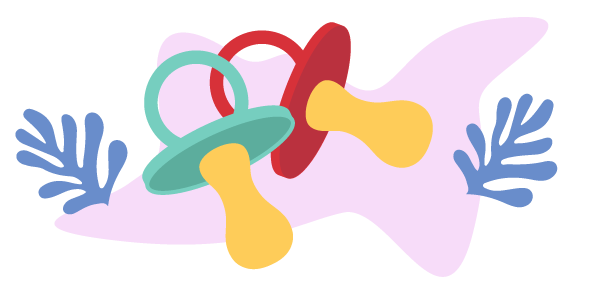

Tips
Continue taking your daily supplements. To avoid missing any doses, you can try taking the supplements at a specific time during the day, such as in the morning, before breakfast, or at night before bed. You can also buy a pillbox from the pharmacy. This will make it easier to check if you missed a dose.
Follow a healthy diet. You may feel hungrier now that nausea has subsided. Keep in mind that your daily energy needs have only slightly increased by now and no more than 300 kcal per day.
Start some form of physical activity. 20-30 minutes of moderate-intensity exercise a day can be beneficial for pregnancy.
Do not forget to take care of yourself. Put cream or essential oil on your belly and breasts and protect your skin with sunscreen when exposed to the sun. Make sure you find some me-time during the day.
16th Week

Fetal size
Apple
What happens in the 16th week of pregnancy?
You are about to complete the 4th month of pregnancy and you have every reason to feel excited. You will soon be holding your baby in your arms and this has definitely filled you with excitement and joy. This trimester is milder in symptoms and comes with an energy boost that makes you feel like you can accomplish anything. You probably already have the results of the nuchal translucency scan, however, if you missed it, there’s no need to worry. From this week on and until the 20th week of pregnancy, you can have the triple test (A-test) or quadruple test. These two tests measure the level of 3 or 4 hormones in your blood, respectively, and calculate the risk that your baby has for a chromosomal anomaly.
Fetal size
By this week, you have probably noticed your belly growing in size. Your pregnancy is now more apparent than ever. Time to proudly wear your first maternity clothes. Your baby is growing fast. It is 12cm long, the size of an apple, and weighs around 100 grams. Its ears continue their development and soon your baby will be able to hear sounds. Its skeletal system becomes stronger day by day, and coordinated movements start gradually occurring. This week your gynecologist will probably ask for a new set of blood tests. If he performs an ultrasound at this point he might be able to inform you about your baby’s sex. Many women feel, this week, their baby move for the first time. This is called the quickening.
Symptoms
- Backache. Your joints and ligaments have become looser to help your body adapt to pregnancy and childbirth. This makes your waist bend forward, causing pain. Keep a good posture and avoid high heels. Stretch your body and exercise to strengthen your back muscles. Take a warm bath, as this will help you relax and ease your pain.
- Increased breast size. You’ve not gained weight, it’s just that pregnancy makes your boobs get bigger. Your body is preparing for breastfeeding. Buy some well-fitting bras and avoid sexy lingerie that does not offer good support.
- Memory problems. You have a lot of things on your mind, so it’s only normal to forget stuff. In fact, many women tend to forget a lot during pregnancy. This is normal and only temporary, as forgetfulness goes away after childbirth.
- Skin changes. Hormones make your skin more oily and make it glow. Unfortunately, because of this, some women may develop acne during pregnancy. If you are one of them, then it is time to visit your dermatologist. They will evaluate your problem and suggest an appropriate skincare routine.
- Dizziness. Many women feel dizzy at this point and this is usually nothing to worry about. Avoid standing for long hours and make sure you drink plenty of water.


Tips
Take your supplements daily and make sure you don’t skip doses. Rest as much as you can and eat healthy.
Make a to-do list. Put it in your diary or stick it on the fridge. This way you won’t forget anything and will remain as productive as ever.
If you missed the nuchal translucency scan, then make sure you take the triple or quadruple test.
If you already know the sex of your baby, you can start thinking of how to decorate the nursery. You can also start making a list of names you like for your baby. However, you should keep in mind that the definite answer for your baby’s sex will come when you’ll have the anatomy scan, which is performed between the 20th and 24th week of pregnancy.
17th Week

Fetal size
Pomegranate
What happens in the 17th week of pregnancy?
You are fast approaching the midpoint of your pregnancy and you will soon be four months pregnant. You have every reason to be happy, however, anticipation and fear of the unknown might intimidate you. If this is how you feel, then now is the time to get organized and prioritize. Start rearranging your baby’s room, even if you still don’t know if you’re carrying a boy or a girl, and make a financial plan. Start saving money for the time of delivery or open a bank account for your baby’s future needs. You can now make the initial market research for the equipment you will need upon the arrival of your family’s new member. These tasks will distract you and make you feel more productive.
Fetal size
Your baby is now 13cm long, the size of a pomegranate, and weighs around 140 grams. It now moves more vigorously in your womb and this week, you might feel your baby’s first kicks. This is called the quickening. However, if it is your first pregnancy, this might not happen until the 20th week. Your baby can now hear sounds, so feel free to talk or sing to your baby. The maternal bond has already begun to form. If you visit your gynecologist this week, they may be able to inform you about the sex of your baby.
Symptoms
- Hemorrhoids. Many women experience this particular problem during pregnancy. All the rumors are true. They hurt a lot! Constipation can cause or even aggravate hemorrhoids. So, make sure you eat foods rich in fiber and drink plenty of water. Prefer washing than wiping after going to the toilet.
- Sensitive skin. As your breasts and belly keep getting bigger, the skin that covers these areas starts stretching, becoming more sensitive and prone to irritation, especially in areas with high tension. Use a cream to relieve itchy skin. If your symptoms persist, talk to your gynecologist or visit a dermatologist.
- Leg cramping. We do not know exactly why they occur, but they can be quite annoying. Especially when they wake you up at night, now that sleep is more precious than ever. Drink plenty of water and do some stretching before going to bed. If they keep bothering you, talk to your doctor.
- Weight gain. You may have noticed your weight going up, now that nausea has subsided and your appetite has increased. Keep in mind that the recommended weight gain, during the second trimester, is around 0.5 kg per week, while your extra energy needs are about 300 kcal per day.
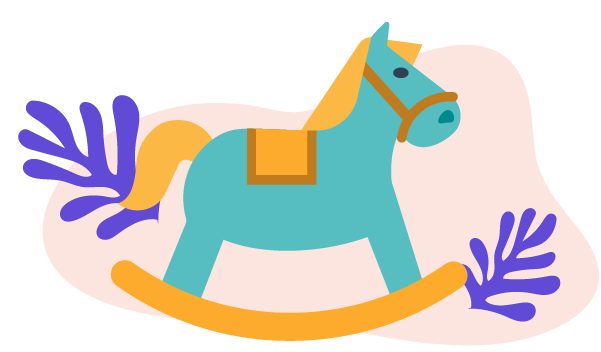

Tips
Keep taking your daily supplements and continue having a healthy lifestyle. Add some form of physical activity to your daily routine. 20-30 minutes of walking a day can boost your mood and be beneficial for your pregnancy.
Spend some quality time with your partner. Now is the time to get closer or even go for a trip. Remember that soon this will not be that easy.
You can start creating a diary of your pregnancy. Start taking weekly pictures of yourself. Thus, you will be able to record your progress and how your body changes through pregnancy. Paste these photos into a book and write down your thoughts. You can later add pictures from your baby’s ultrasound or your first visit to the stores.
If you missed the nuchal translucency scan, then now is the time to take the triple test (A-test) or quadruple test. With these two tests, the levels of 3-4 hormones are measured in your blood and, based on these, the risk your baby has for a chromosomal anomaly is calculated.
18th Week

Το μέγεθος του μωρού σας ειναι ίσο με
Bell Pepper
What happens in the 18th week of pregnancy?
Congratulations! You have officially completed the 4th month of pregnancy. Your growing belly now clearly shows that you will soon be a mom. Time to wear those comfortable maternity clothes and share the news with others. As your baby gets bigger, so does your uterus, while your body adjusts to the increased needs of pregnancy. Your emotions can be greatly affected by all these changes. Do not be afraid to express how you feel and ask for help if this whole process makes you feel anxious.
Fetal size
Your baby has grown considerably. Its crown-rump length is now 14cm, the size of a pepper, and weighs around 200 grams, as much as a mobile phone. Your baby is moving a lot inside your womb and this week you will probably feel the first flutters. This is called the quickening. If you don’t, then it’s ok as well. Many women feel their baby’s first movements no earlier than the 20th week. Your baby can now yawn, swallow, and there are also times when it has hiccups. Its gastrointestinal system is already functioning, while its urinary system has begun to produce urine, which fills its bladder making it visible with ultrasound. This week, it is also developing fingerprints. Your baby becomes more and more special!
Symptoms
- Swollen hands and feet. Pregnancy causes fluid retention and dilates the veins in your legs, making your feet swollen and heavy. Make sure you move around often and avoid standing or sitting for long hours. Avoid sitting with your legs crossed, as this can make things even worse. Try to keep your feet elevated, when sitting or lying down using a stool or a pillow, respectively. These simple measures can really make a difference!
- Leg cramps. Apart from being painful, they can be very annoying, as they can disrupt your sleep. Try massaging or stretching your legs before going to bed and drink plenty of water.
- Backache. Pregnancy hormones make your joints looser. This helps your body adjust to pregnancy and childbirth. However, it can also cause pain in your waist or back. Maintain a good posture when sitting or walking. Yoga can also help relieve pain by strengthening your back muscles.
- Dizziness. Everything is spinning. If you feel dizzy while lying on your back, then you should turn to your side. Your uterus presses the inferior vena cava vein, the vessel that returns blood from your lower body to the heart, reducing the blood supply to your brain and causing dizziness. This is called the “inferior vena cava syndrome”. If this happens while you are standing, try to sit down and eat something sweet. Your blood sugar may be low. If your symptoms persist, then you should talk to your doctor.
- Nosebleeds. Your nose may become more sensitive and prone to bleeding during pregnancy. If you have a nosebleed, try applying constant pressure to the upper part of your nose. A little ice can also help. These simple measures will stop the bleeding in most cases. If you have frequent nosebleeds, then you should probably visit an otolaryngologist.
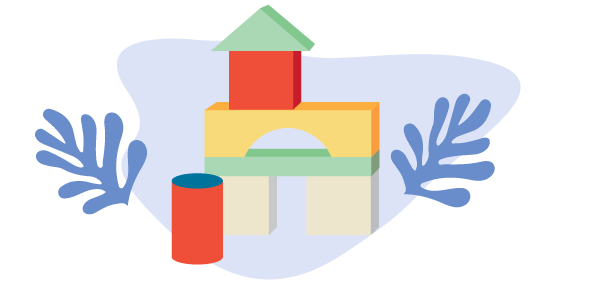

Tips
Keep taking your daily supplements, follow a healthy diet and drink plenty of water.
Exercise can be beneficial for you and your baby. Moderate-intensity exercise, such as yoga, pilates, walking, swimming, or resistance training, is ideal for pregnancy.
If you missed the nuchal translucency scan, you can now take the triple (A-test) or the quadruple test. These two tests measure the levels of three or four hormones in your blood and calculate the risk your baby has for a chromosomal anomaly.
Now is also the time to schedule your anatomy scan. This ultrasound is performed between the 20th and 24th week of pregnancy by a gynecologist specialized in fetal medicine. It thoroughly checks the anatomy of your baby and can inform you about its sex.
Try sleeping on your side. This is a habit that will help you a lot in the future.
19th Week

Fetal size
Mango
What happens in the 19th week of pregnancy?
You have come so far, but you still have a long way to go. The bothersome symptoms of the first trimester have subsided, but new ones make their appearance, probably just as annoying. Arm yourself with patience, as this is only the midpoint of pregnancy. Weight gain might have become an issue. For a woman with a normal body mass index (BMI), the recommended weight gain in the 1st trimester is 1-2 kg. The suggested weekly increase in the 2nd trimester is around 0.5 kg. So, by now, your weight may have increased as much as 5 kg. If your number is much greater than this, then you should probably adjust your diet and start some form of physical activity.
Fetal size
Your baby’s length is now about 15cm, i.e. the size of a mango, and weighs around 240 grams. At this point, it has fully developed the oral cavity, while the inner ear, the auricle, and the lungs continue their development. The brain and kidneys are also constantly maturing. Your baby keeps moving around in your belly and this week, you may feel the first baby flutters. This is called the quickening. Most mothers-to-be have their quickening by the end of the 20th week. Soon, you will have your anatomy scan. This ultrasound will check all of your baby’s organs and will inform you with certainty about its gender. If you don’t wish to learn the sex of the baby and keep it as a surprise for the birth, then you should ask your doctor to withhold this information.
Symptoms
- Abdominal pain. As your uterus grows to accommodate your baby, the ligaments that hold it in place stretch. This can cause pain in your belly, usually mild and short-lasting. If the pain, however, becomes intense or is combined with other symptoms, such as vaginal bleeding, fever, or urinary problems, then you should contact your gynecologist.
- Dizziness. In the 2nd trimester, dizziness might start bothering you. This can be caused by a low blood glucose level or by a sudden drop in your blood pressure. Make sure you drink plenty of water and keep always something sweet in your bag. When lying down try to tilt your body slightly to the side to avoid the inferior vena cava syndrome.
- Leg cramps. They can happen even when you sleep. If you have ever woken up at night due to leg cramps, then you know how annoying they can be. Drinking 2-3 liters of water per day can be very helpful. You can also try massaging or stretching your legs before going to bed.
- Back and joint pain. Pregnancy makes your ligaments and joints looser, allowing your waist to bend forward, creating a slight lordosis. This can cause back pain. Maintain a good posture and make sure you do some exercise, such as yoga, to strengthen your back muscles. Prefer comfortable, flat shoes, such as sandals or sneakers, and say goodbye to your high heels.


Tips
Keep taking your supplements regularly and make sure you do not skip doses. Stay hydrated at all times.
During the 2nd trimester, most women experience an increase in their energy levels. Take advantage of this opportunity to do things you’ve been putting off. Make a to-do list so you don’t forget anything and remain as productive as ever. Start writing down all the equipment you are going to need when your baby arrives. You can also start painting and rearranging the nursery now that you know the sex of your baby.
It may seem a bit early, however, it is a good idea to start looking for a pediatrician. You can ask your relatives or people from your inner circle and start interviewing. The pediatrician will examine your baby not only immediately after delivery, but also a few days later, to make sure it is perfectly healthy.
If you have not scheduled the anatomy scan, now is the time to do so.
The skin is the largest organ of your body, so don’t forget to take good care of it. Apply cream or essential oil on your belly and breasts to avoid stretch marks and put sunscreen on when exposed to the sun.
20th Week

Fetal size
Banana
What happens in the 20th week of pregnancy?
You have reached the midpoint of pregnancy and you will soon be five months pregnant. Time to celebrate and reward yourself. Plan a trip or just spend some quality time with your partner. This moment is unique, but you can make it even more special.
From this week on, you can have the anatomy scan. This ultrasound is performed by a gynecologist specialized in fetal medicine and examines your baby’s anatomy in detail. With this scan, you will also find out if you are carrying a boy or a girl. Time to start thinking of possible names for your child and rearrange the nursery.
Fetal size
This week, your baby is about 16cm long, the size of a banana, and weighs around 320 grams. At this stage, it has completed the development of the inner ear, which means that it can now hear you and respond to loud noises. It has also begun to demonstrate regular sleep-wake cycles. If you pay close attention, you can tell when it is awake or asleep. When awake it is more energetic and you can feel it moving more vigorously. You may also have noticed that whenever you eat something sweet, the kicks multiply. That is because sugar stimulates your baby. It is now making organized movements and has started sucking its finger. If you’re carrying a girl, then, this is the week that the follicles in her ovary are the highest in number, about 6 million. However, most of them will degenerate, that is, they will be destroyed, by a process called atresia. At birth, there will be only 1 million follicles left.
Symptoms
- Forgetfulness. You have surely noticed that your memory has become weaker, but this is normal. Pregnancy makes you forget. If you do not want to miss anything, make a to-do list and check it regularly throughout the day. That way you will remain as productive as ever.
- Nasal congestion and nosebleed. Pregnancy causes swelling of the nasal mucosa and makes it more sensitive. Thus, your nose is now more prone to nosebleeds, especially if you have allergic rhinitis. Gentle pressure on the upper part of your nose, ideally with some ice, will usually stop the bleeding. A humidifier can also help reduce these incidents.
- Heartburn. Your uterus is constantly growing and has now reached the height of your navel, pushing your intestines and stomach as it takes up more space. This in combination with the action of progesterone, which causes relaxation of the esophageal sphincter, can lead to heartburn and indigestion. Prefer small and frequent meals and avoid lying down immediately after eating.
- Constipation. It makes you bloated and can aggravate your hemorrhoids. Drink plenty of water and eat foods rich in fiber. Prefer washing than wiping after going to the toilet.


Tips
Keep taking the iron, calcium, folic acid, and vitamin D supplements recommended by your doctor. These supplements provide your body with the nutrients your baby needs during its development.
Eating healthy is important, while moderate-intensity exercise, such as walking, swimming, yoga, or pilates, can be beneficial for pregnancy.
Schedule your next appointment with your gynecologist and have your anatomy scan.
Go for a trip. Take advantage of the energy boost the 2nd trimester gives you. If you plan on traveling by plane, then make sure you wear elastic socks during the flight to avoid vein thrombosis.
21st Week

Fetal size
Carrot
What happens in the 21st week of pregnancy?
You have now completed the first half of pregnancy and you are probably looking forward to holding your baby in your arms. Just picturing that makes you smile and of course, you have every reason to do so. Most of the annoying symptoms of the first trimester have subsided and with the energy boost the second trimester gives you, you feel more creative than ever. So, time to find ways to make the most out of it.
The anatomy scan of the fetus is usually performed this week. This is an ultrasound that examines your baby’s anatomy in detail, from the brain and heart to the lungs and fingers. With this ultrasound, you will also find out the sex of your baby. Time to make a list of the names you like and choose a color for painting the nursery. If you want the baby’s gender to be a secret for you, then you should ask your doctor not to disclose this information. In this case, you can choose neutral colors for the baby’s room and clothes.
Fetal size
This week, your baby’s crown-rump length is about 18 cm, about the size of a carrot, and weighs around 370 grams. The inner ear is now fully developed and your baby is able to hear sounds and respond to auditory stimuli. Its nails are constantly growing and its skin has begun to produce vernix, a viscous substance made up of water, lipids, and proteins. Vernix covers your baby’s skin and protects it from the amniotic fluid. The respiratory system continues to develop and the brain and kidneys keep maturing. Finally, in the intestine, the production of meconium has begun. This is a dark green substance composed mainly of dead cells. If your baby is a boy, then his testicles are already functional and produce testosterone. However, they have not yet descended into the scrotum, but they are still in his abdomen.
Symptoms
- Leaking colostrum. Your breasts are getting ready for producing milk and breastfeeding. Many women experience leakage of a thick, yellow fluid from their breasts., called colostrum. It is not something to worry about but can be quite annoying. Breast pads can protect your bra and shirts from stains.
- Braxton-Hicks contractions. From the end of the second trimester, but mainly the beginning of the third, many women start having the so-called Braxton-Hicks contractions. These are contractions of the uterus, usually mild, lasting no more than 30-60 seconds. They are sparse and occur less than once every 2 hours. If you notice more frequent or longer-lasting contractions, then you should talk to your gynecologist.
- Hot flashes. Hormones can throw the thermoregulatory center in your brain off balance, while your increased metabolism can raise your basal body temperature. To avoid hot flashes, find a room temperature you are comfortable with and maintain these conditions in your home throughout the day.
- Dizziness. You may have noticed that when you lie on your back, you feel dizzy. This is because your uterus puts pressure on the vessels in your pelvis and prevents blood from returning to your heart, a phenomenon called “inferior vena cava syndrome”. Try to tilt your body to the side, even when you are sleeping. There are special pillows that can help you find a comfortable sleeping position.
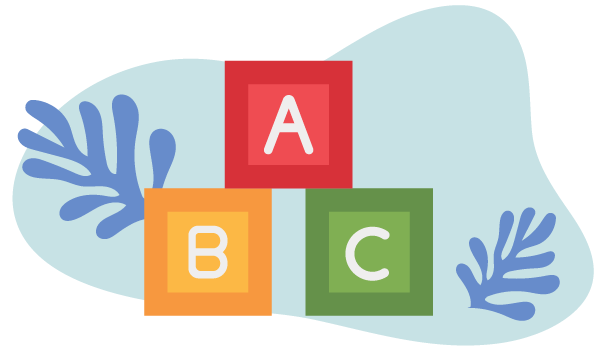

Tips
Continue taking your daily supplements without skipping doses. Eat healthy and exercise if you feel up to it. Walking, swimming, yoga, or pilates is ideal for pregnancy and can be beneficial for your baby.
If you have already decided what your baby’s name will be, then now is the time to start thinking about who your child’s godfather or godmother will be. You can also start looking for places where this beautiful event can take place.
Make sure you have everything you need for your baby’s arrival or make a list to ensure you’re not forgetting anything.
You can now start attending childbirth classes. They will help you prepare for the time of labor. You can also choose if you want to have a personal midwife, who will monitor your pregnancy, along with your gynecologist, and be present at your delivery.
22nd Week

Fetal size
Coconut
What happens in the 22nd week of pregnancy?
You have just completed the 5th month of pregnancy. Only 4 left to go. Time to reward yourself. Plan a trip with your partner and spend some quality time together or just have some me-time. In the third trimester, the fatigue you felt in early pregnancy might return, so take advantage of this opportunity to do things you enjoy. Time to pack your bags, book your tickets, and go.
If you have not already had your anatomy scan, then now is the time to do so. This ultrasound is usually performed before the 23rd week of pregnancy and no later than the 24th. So, don’t put it off and just have it done.
Fetal size
Your baby has grown considerably. Its crown-rump length is now 19cm, about the size of a Coconut. Very exotic! It weighs around 460 grams, almost half a kilo. The inner ear is developed and your baby can hear sounds and respond to loud noises. Its skin has started producing vernix, a waxy substance that covers its body and protects it from the amniotic fluid. The maturation of the brain, kidneys, and lungs continues. Your baby can now make coordinated movements and has regular sleep-wake cycles. The moments that you notice your baby’s movements the most are usually the ones when it is awake.
Symptoms
- Popping belly button. Your uterus continues to grow and take up more space in your abdomen as the weeks go by. This causes your abdominal wall to stretch and increases the pressure inside your belly, causing your navel to protrude. No need to worry. After childbirth, your navel will return to its place.
- Heartburn. Your uterus keeps increasing the pressure inside your abdomen. At the same time, progesterone makes the esophageal sphincter more relaxed, which in turn allows partially digested food to escape into the esophagus, resulting in heartburn. Prefer eating small and frequent meals and avoid foods that might irritate your stomach.
- Shortness of breath. Pregnancy is characterized by an increased metabolic rate, which makes your heart beat faster. At the same time, your growing uterus increases the pressure on your diaphragm, forcing your lungs to work in a smaller space. As a result, there might be times when you’re out of breath. If this happens, try to sit down and breathe regularly. If the symptoms persist, call your doctor.
- Pain in your pelvis or back. The joints in your pelvis along with all the other joints in your body have become looser due to pregnancy. This can cause pain in your pelvis, hip, or waist. Avoid standing for long hours, lifting heavy objects, or wearing high heels. Yoga can also help relieve pain by strengthening your back muscles.
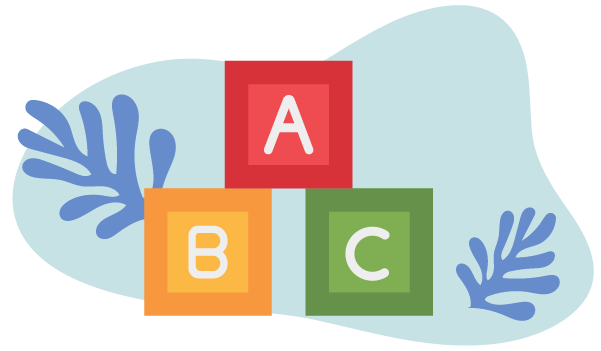

Tips
Follow a healthy, balanced diet to avoid excess weight gain. Your energy needs have only slightly increased, around 300 kcal per day, and the recommended weight gain this trimester is 0.5 kg per week. Continue taking your daily supplements and make sure you do not miss any doses. Drink plenty of water especially during the hot months. Staying hydrated can help prevent urinary tract infections.
Add some form of exercise to your daily routine. A little walking or swimming for 20-30 minutes a day can help boost your mood and can have significant benefits for pregnancy.
Hydrate your skin using cream or essential oil, paying extra attention to your belly and breasts to avoid stretch marks. Always put sunscreen on when going out in the sun.
Start equipping your house with the essentials for when your baby arrives. Now that you know its gender, you can start rearranging the nursery. You can also start making a list with possible names for your child and thinking about who will be your baby’s godfather or godmother.
Make a delivery plan. Discuss with your doctor where the birth will take place along with the possibility of having a personal midwife, who will help you in pregnancy, childbirth, and the puerperium.
23rd Week

Fetal size
Eggplant
What happens in the 23rd week of pregnancy?
This is the 5th month of pregnancy, while the 6th is fast approaching. This means that you have already completed the first half of pregnancy. Take a deep breath, relax and reward yourself. All the changes your body is going through, as well as the anticipation of your baby’s arrival, may have made you feel anxious. Many women feel the exact same thing as you do. Make sure you find some me-time to relax and let off steam. Your baby can sense what you are feeling, so don’t forget to tend to your own needs as well. If it makes you feel better, share your thoughts with your partner or someone close to you. You don’t have to be alone in all this.
Fetal size
Your baby is now 20cm long from head to bottom, the size of an eggplant, and weighs around 500 grams. After the end of this week, your baby will be considered viable, meaning that its chances for survival outside the uterus increase. This is usually the last week, in which the anatomy scan is performed, but it can be done up until the 24th week. This ultrasound is performed by a gynecologist specialized in fetal medicine and examines your baby’s anatomy in detail. With this scan, you can also find out if you’re carrying a boy or a girl. This week, your baby’s facial features have fully developed, while the brain and kidneys continue to mature. It can hear sounds and demonstrates regular sleep-wake cycles. You have probably noticed that there are moments when your baby is more active than others. These are usually the moments when it is awake.
Symptoms
- Braxton-Hicks contractions. These are mild contractions of the uterus, which appear at the end of the second trimester or the beginning of the third. They are short-lasting, usually 30-60 seconds, and less frequent than 1 in every 2 hours. If the contractions are more frequent than that or cause significant pain, then you should contact your gynecologist.
- Swollen feet and ankles. Your feet may no longer fit in your shoes, especially after several hours of standing. The uterus puts significant pressure on the vessels of your pelvis, resulting in blood pooling in your lower extremities. This in combination with the fluid retention caused by pregnancy causes your feet to swell. Avoid standing or sitting for long hours and use a stool or pillow to elevate your feet when sitting or lying down, respectively. If you notice increased temperature, redness, or pain in either of your legs, consult your doctor.
- Sensitive gums. During pregnancy, there is increased perfusion to the gums. This can promote germ overgrowth and make your gums sensitive to brushing. Your dentist will help you choose the right toothbrush and treat any dental problems that might exist. Good oral hygiene is especially important for pregnancy.
- Increased sex drive. If there are no contraindications and you feel up to it, then don’t be afraid to get intimate with your partner. However, keep in mind that your cervix is now softer, so it is possible to see some spotting after intercourse. Orgasm might also incite mild contractions of the uterus. This is normal and usually short-lasting.


Tips
Eat healthy, drink plenty of water and continue to take your daily supplements. By now you should have gained about 6-7 kgs. Your extra energy needs at this point are 300 kcal per day.
Exercise can help you relax. Go for a walk or do some yoga. Moderate-intensity training is not contraindicated during pregnancy and may be beneficial for you and your baby.
Start making a financial plan and calculate the first expenses of childbirth. This way you will avoid any unpleasant surprises. You can also now consider whether you want to buy a health insurance plan for your baby right after birth.
Take weekly pictures of yourself, paste them into a diary, and write down your thoughts. This way you will keep your memories from pregnancy alive. You can also schedule a professional photoshoot, which can take place a few weeks later, once your belly grows a little bigger.
Ask your doctor for an ultrasound image of your baby, put it in a frame, and place it in a special place in your house.
If you already have children, then you should start preparing them for your baby’s arrival. If you do not know how there are many websites that can help you with this. Consulting an expert is also an option that you can consider.
24th Week

Fetal size
Corn
What happens in the 24th week of pregnancy?
This is an important milestone of pregnancy. From this week on, your baby is considered viable, which means that its chances of adapting to life outside the uterus have increased. This can be reassuring. Even though most women give birth after the 36th week of pregnancy, some women might deliver earlier than that.
By this week, you should have already had your baby’s anatomy scan. Your gynecologist will review the results and inform you about them. They will also ask you to do a test called glucose tolerance test. This test is done between the 24th and 28th week of pregnancy and looks at how well your body responds to glucose and if you have gestational diabetes. Most women describe this as an unpleasant experience, however, it is an important pregnancy test.
Fetal size
Your baby’s crown-rump length this week is 21cm, i.e. the size of corn, and weighs around 630 grams. It has developed most of its organs and has now started to store fat, which will keep it warm after childbirth and cover its first energy needs. In this phase, its eyebrows begin to grow, while its body is covered by a fine layer of hair, called lanugo. Lung development and brain and kidney maturation continue to occur. Your baby now demonstrates organized sleep-wake cycles and can hear sounds. Now you can sing and talk to it. Your baby is all ears.
Symptoms
- Skin changes. Your skin is stretched due to pregnancy and fluid retention. Because of this, it has become more sensitive and prone to irritation. You may also have noticed the first stretch marks making their appearance on your abdomen or breasts or your skin getting darker in some areas, such as your nipples, the midline of your abdomen, and your face. These dark spots on your face are called chloasma or mask of pregnancy. Take care of your skin and keep it hydrated using cream or essential oil. Always put sunscreen on when exposed to the sun.
- Dizziness and balance problems. Your growing belly has shifted your body’s center of gravity forward, making it harder for you to balance. In addition, changes in your circulatory system can cause dizziness, especially after several hours of standing. Sit down and take a deep breath. When lying down, remember to tilt your body to the side to avoid the so-called inferior vena cava syndrome.
- Sleeping problems. Your belly may prevent you from finding a comfortable sleeping position, but there are special pillows that can help you with this. Your sleep might also be disrupted by night leg cramps. A few stretching exercises before going to bed and drinking plenty of water throughout the day can help you deal with this problem.
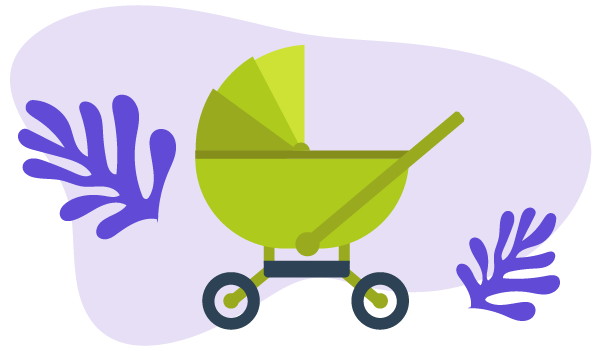

Tips
Nutrition plays an important role in pregnancy. Make sure you cook and wash your food properly and avoid any unhealthy eating habits. By now you should have gained around 6-7 kg. Continue taking your supplements daily and drink plenty of water.
Make sure you incorporate some exercise into your daily routine. 20-30 minutes of moderate-intensity exercise, such as walking, swimming, or yoga, can be beneficial for pregnancy. You can also start doing some Kegel exercises to strengthen your perineal muscles. This will help reduce the chances of developing urinary incontinence later in pregnancy or after childbirth.
If you feel up to it and there are no relevant contraindications, you can have sex with your partner.
If you have not yet decided how or where you want to deliver, now is the time to do so. You should also consider the possibility of having a personal midwife, who will assist you in childbirth and the puerperium.
While you still have enough energy, you can think of the necessary modifications that will make your home safer for your baby. Block open outlets with safety plugs, cover sharp furniture edges and corners, and place cabinet latches in your cupboards and drawers.
This is probably your last chance to go on a trip with your partner. This will be much more difficult later. So book your tickets, pack your things, and go.






